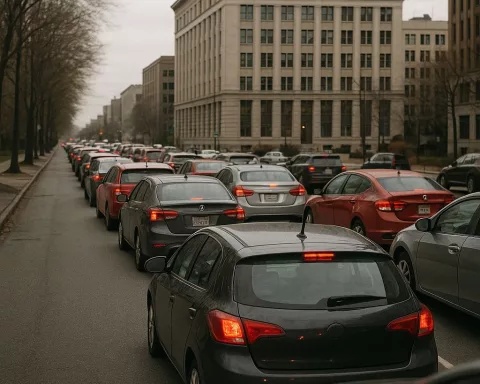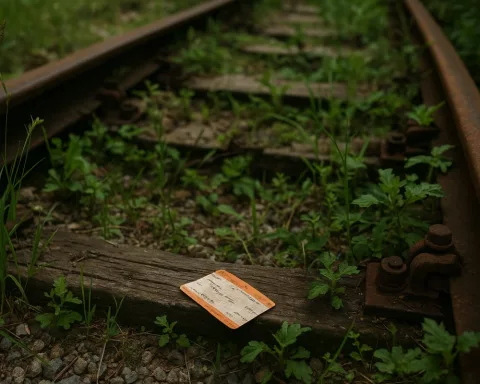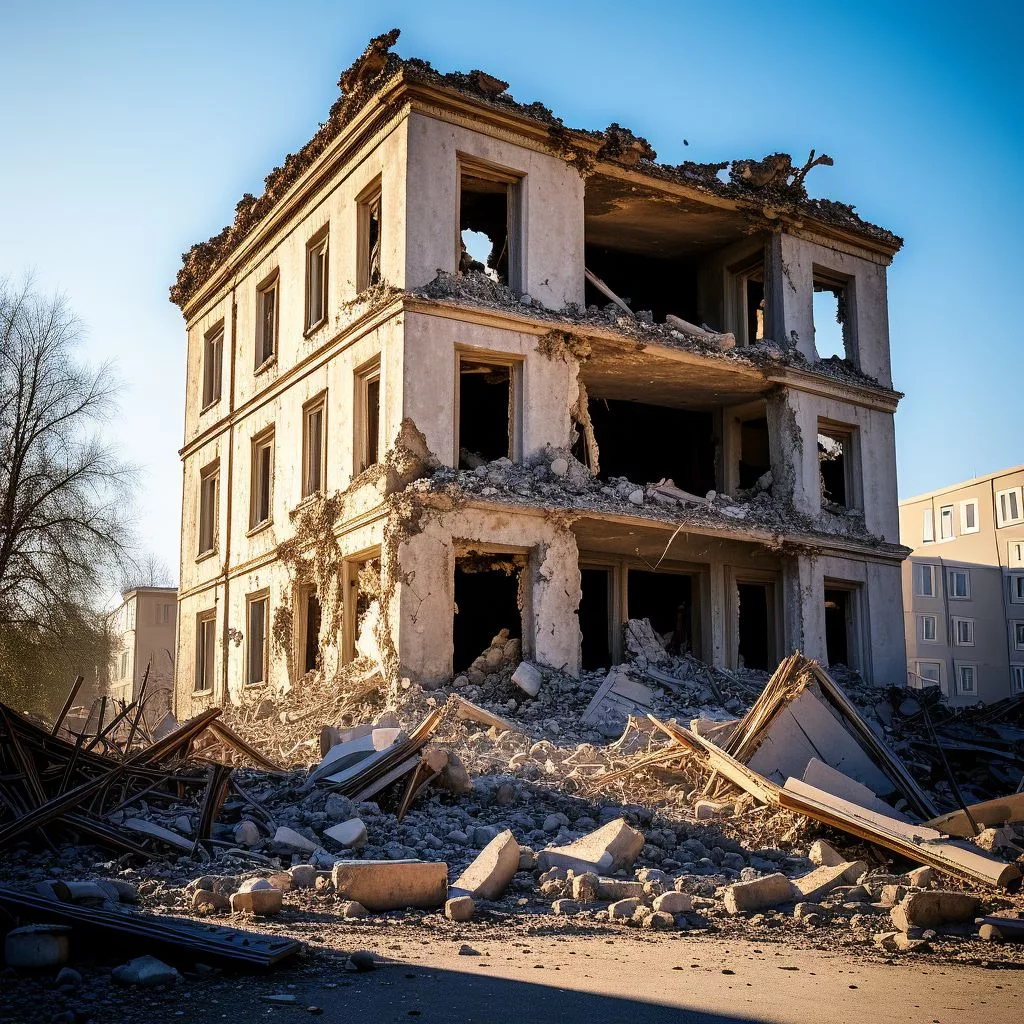In Cape Town, families from Masonwabe Hostel have been living in a temporary area for 12 long years, waiting for promises of a return home that never come. Their new homes are poorly built, with thin walls that can’t protect them from the cold or the violence outside. Residents like Andile and Nolusindiso express their frustration, questioning why the city is building roads if they are supposed to be moving back soon. Despite the harsh conditions, these families show remarkable strength, trying to make their lives better while hoping for a brighter future.
What is the situation of families in Masonwabe Hostel, Cape Town?
The families displaced from Masonwabe Hostel face ongoing uncertainty after 12 years in a Temporary Relocation Area (TRA) in Gugulethu. Promised a return home, they now endure poor living conditions and lack clear communication from the City regarding their future, highlighting a crisis of urban displacement.
The Origins of Displacement
In the vibrant yet chaotic landscape of Cape Town, a story of displacement lingers in the shadows. Twelve years ago, the City of Cape Town relocated families from the unsafe Masonwabe Hostel to a Temporary Relocation Area (TRA) in Gugulethu. This move, intended to be a brief interlude while the hostel underwent repairs, has instead resulted in a protracted period of uncertainty for these families, who remain in the TRA with no clear end in sight.
The original reason for the relocation was the deteriorating condition of the Masonwabe Hostel, which had been deemed hazardous and unsuitable for habitation. The TRA, situated conspicuously behind the Gugulethu police station, became the new home for about 80 families. Over time, the number of structures increased to around 136, reflecting not just a temporary refuge but a growing, albeit makeshift, community.
Living in Limbo
Andile Ngcwangu, one of the initial residents moved from the hostel, has seen firsthand the stark realities of life in the TRA. His home, like many others in the area, exhibits an unfinished appearance, with exposed steel frames and walls made of inadequate insulation materials like zinc sheets. Inside, the basic amenities include a small bathroom with a toilet and sink. Ngcwangu’s experience highlights the vulnerability of these structures, especially during a gang violence incident in February when bullets pierced the thin walls. “I had to dodge bullets,” he recalls, pointing to the holes left behind. His complaints about poor maintenance and extreme temperature fluctuations further underscore the daily struggles faced by these residents. “When it’s cold, it’s freezing inside; when it’s hot, it’s unbearable,” Ngcwangu adds, noting that even mice can easily infiltrate their homes due to the shoddy construction.
Nolusindiso Leputhing, the community chairperson, echoes a broader sentiment of frustration and concern among the residents. “It has been 12 years, and we are still here,” she laments, questioning the City’s actions in building roads in what was supposed to be a temporary settlement. “Why make roads if we’re only here temporarily?” she asks, implying that the City might be preparing for their extended stay. This lack of clear communication from the authorities has left families in a perpetual state of ambiguity and worry.
Growing Pains and Broken Promises
The passage of time has only exacerbated the situation. Families that initially moved into the TRA in 2013 have since expanded, leading to increasingly cramped living conditions. Many residents have taken it upon themselves to modify and extend their structures in an effort to create more space. “We need to know what is happening,” Leputhing demands, seeking answers about the future of the old hostel site and the prospect of permanent housing.
Reflecting on the promises made in 2013, Bruce Oom, the spokesman for the Western Cape MEC for Human Settlements at the time, had assured that the TRA was a temporary solution while the Masonwabe hostel underwent repairs. “The affected families are expected to move back to the hostel site when all restoration work is completed,” Oom stated, adding that the temporary houses would be dismantled afterward. However, nearly a decade later, the City’s recent statements paint a different picture. According to the City, relocating the residents is “not in the immediate plans.” They referred to TRAs as “incremental development areas” meant for emergencies, suggesting that the state of emergency for these families has yet to pass.
The Broader Implications
The unanswered questions about the future of the Masonwabe hostel site only deepen the residents’ sense of abandonment. The City has vaguely promised to “provide an update in due course,” which does little to ease the anxieties of those still living in the TRA. This lack of clear and consistent communication fosters a sense of neglect and disillusionment among the residents.
The situation in Gugulethu is not an isolated case but rather a reflection of a more extensive issue of urban displacement and housing insecurity that has affected many marginalized communities around the world. The plight of the TRA residents highlights the consequences of inadequate urban planning and the failure to prioritize human needs in the face of bureaucratic inertia.
Despite these challenges, the resilience of the Masonwabe community shines through. These families have not merely waited passively but have actively sought to improve their living conditions, despite limited resources. Their efforts to adapt and extend their homes underscore a determination to create some semblance of stability and comfort in an environment that seems resistant to such efforts.
The Need for Accountable Governance
The concept of impermanence, often celebrated in the art world, takes on a more sinister aspect when applied to human settlements, particularly those involving vulnerable populations. The Masonwabe TRA, initially conceived as a temporary measure, has become a stark example of the dangers of neglecting the long-term needs of displaced communities.
Reflecting on this narrative brings broader implications for urban policy and social justice into focus. The case of the Masonwabe families in Gugulethu serves as a poignant reminder of the human cost of broken promises and the urgent need for accountable governance. The community’s experience underscores the importance of keeping promises and maintaining open lines of communication between authorities and residents.
In conclusion, the story of the Masonwabe hostel families is a powerful testament to the resilience of human spirit in the face of adversity. It also serves as a call to action for policymakers to prioritize the needs of displaced communities and ensure that temporary solutions do not become permanent sources of suffering. The Masonwabe community’s unwavering determination to improve their circumstances, despite numerous challenges, is a poignant reminder that behind every policy decision are real lives and real stories deserving of dignity and respect.
“`markdown
What is the current living situation for families in Masonwabe Hostel, Cape Town?
The families displaced from Masonwabe Hostel have been living in a Temporary Relocation Area (TRA) in Gugulethu for 12 years, facing inadequate living conditions and a lack of clear communication from the City about their future. They are in a state of uncertainty, having been promised a return to their original homes that has yet to materialize.
Why were the families relocated from Masonwabe Hostel?
The families were relocated due to the unsafe and deteriorating conditions of the Masonwabe Hostel, which was deemed hazardous for habitation. The relocation was intended to be a temporary measure while repairs were made, but it has extended into a prolonged period of uncertainty for the residents.
What are the living conditions like in the Temporary Relocation Area?
The living conditions in the TRA are poor, with residents living in makeshift structures that often have thin walls made of inadequate materials, such as zinc sheets. These homes lack proper insulation, making them vulnerable to extreme temperatures and external violence. Basic amenities are also minimal, contributing to the overall hardships faced by the families.
What are the residents’ concerns regarding their future?
The residents, like Nolusindiso Leputhing, express frustration over the lack of clear communication from the City regarding their future, questioning the ongoing construction of roads in an area they were supposed to occupy temporarily. They are seeking answers about the status of the Masonwabe hostel and when they might receive permanent housing solutions.
How has the situation evolved over the years?
Over the years, the number of structures in the TRA has increased beyond the initial number, reflecting not only the growing community but also the cramped living conditions that have resulted from families expanding their homes. The prolonged stay has led to a sense of neglect and disillusionment among residents who feel abandoned by authorities.
What can be done to address the issues faced by the Masonwabe families?
Addressing the issues faced by the Masonwabe families requires accountable governance and a commitment from policymakers to prioritize the needs of displaced communities. It is crucial for authorities to maintain open communication with residents, keep their promises regarding housing, and ensure that temporary solutions do not become permanent sources of suffering. The resilience of the community highlights the need for immediate action to improve their living conditions and provide a clear path forward.
“`












